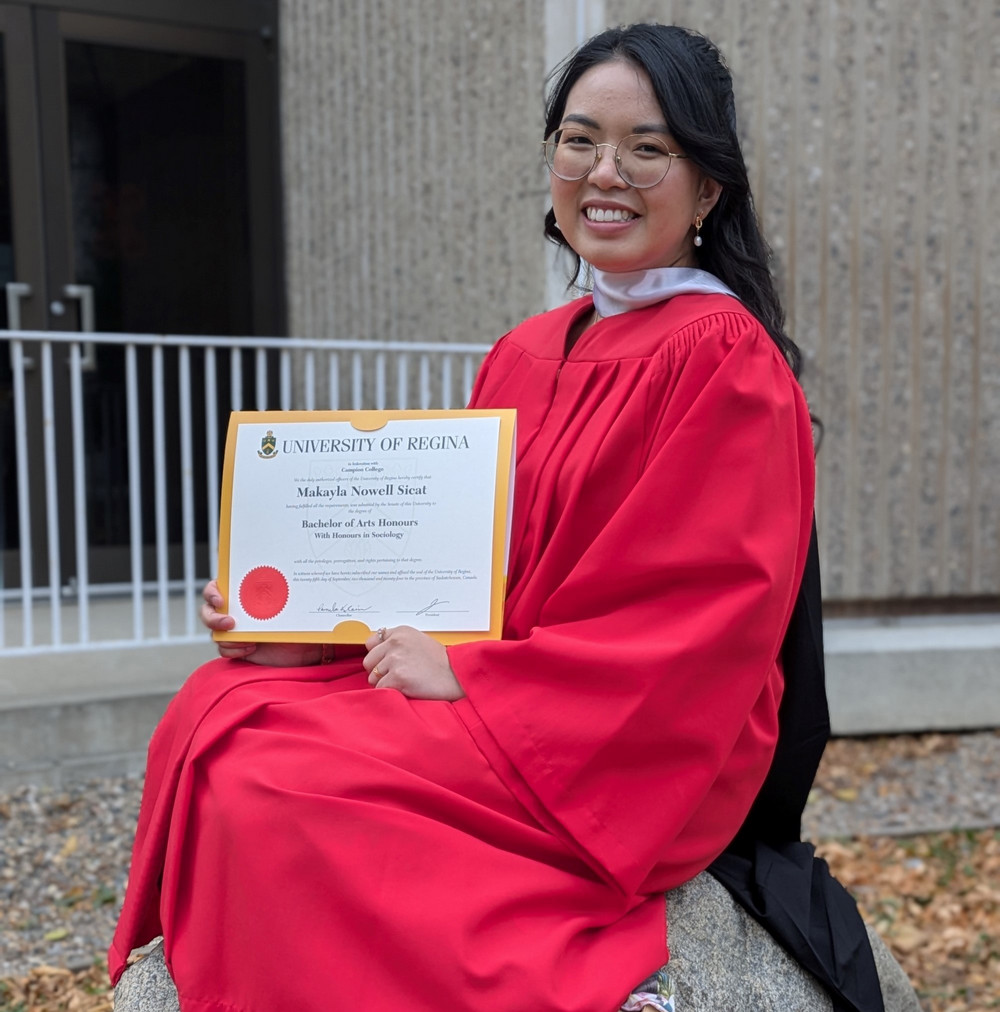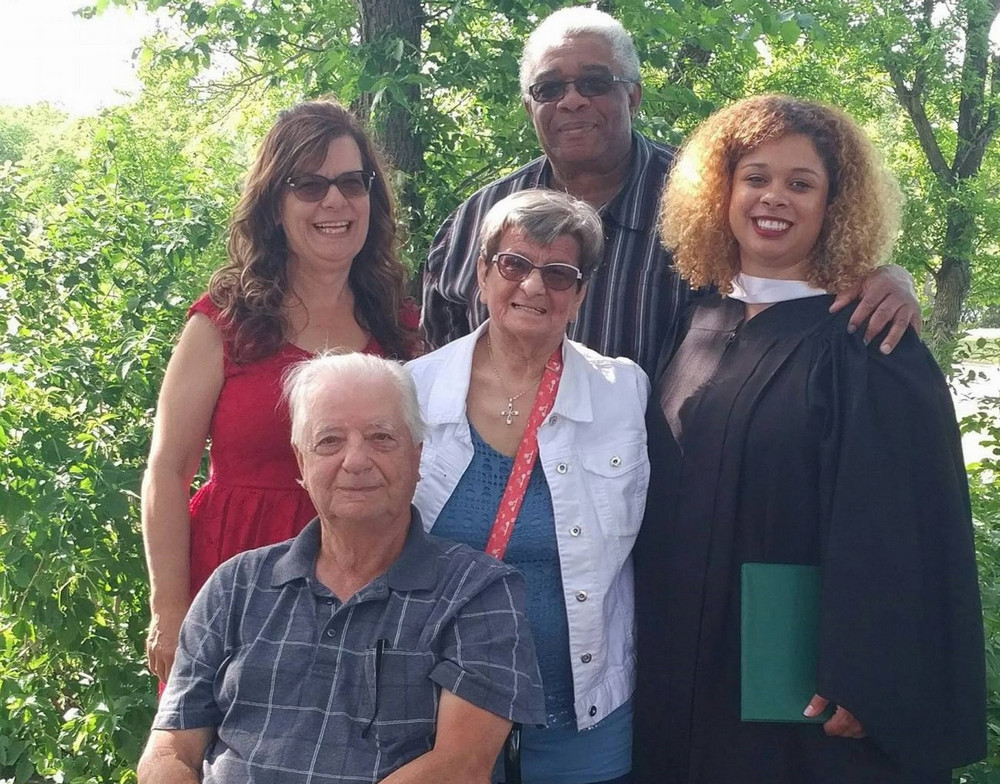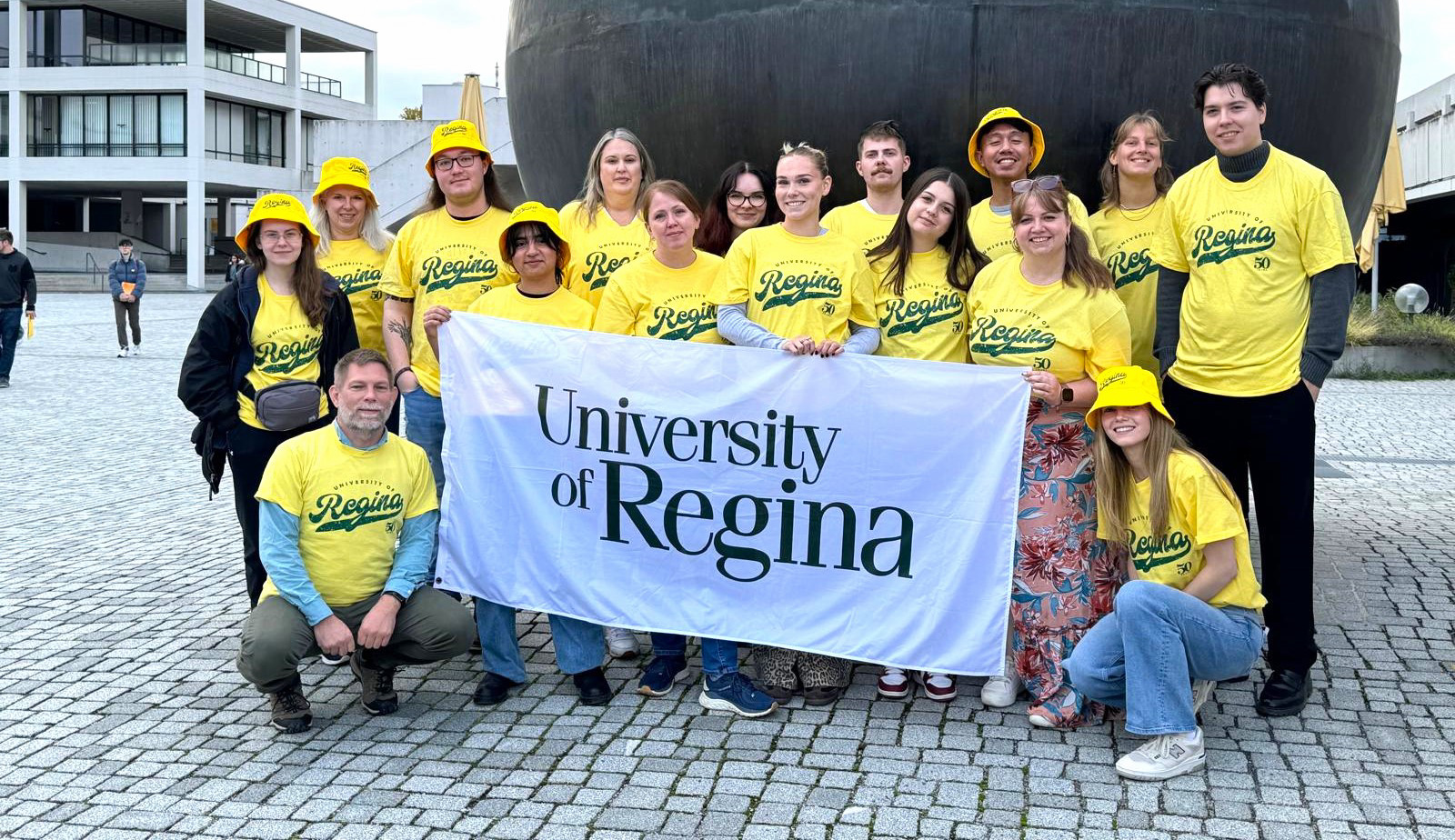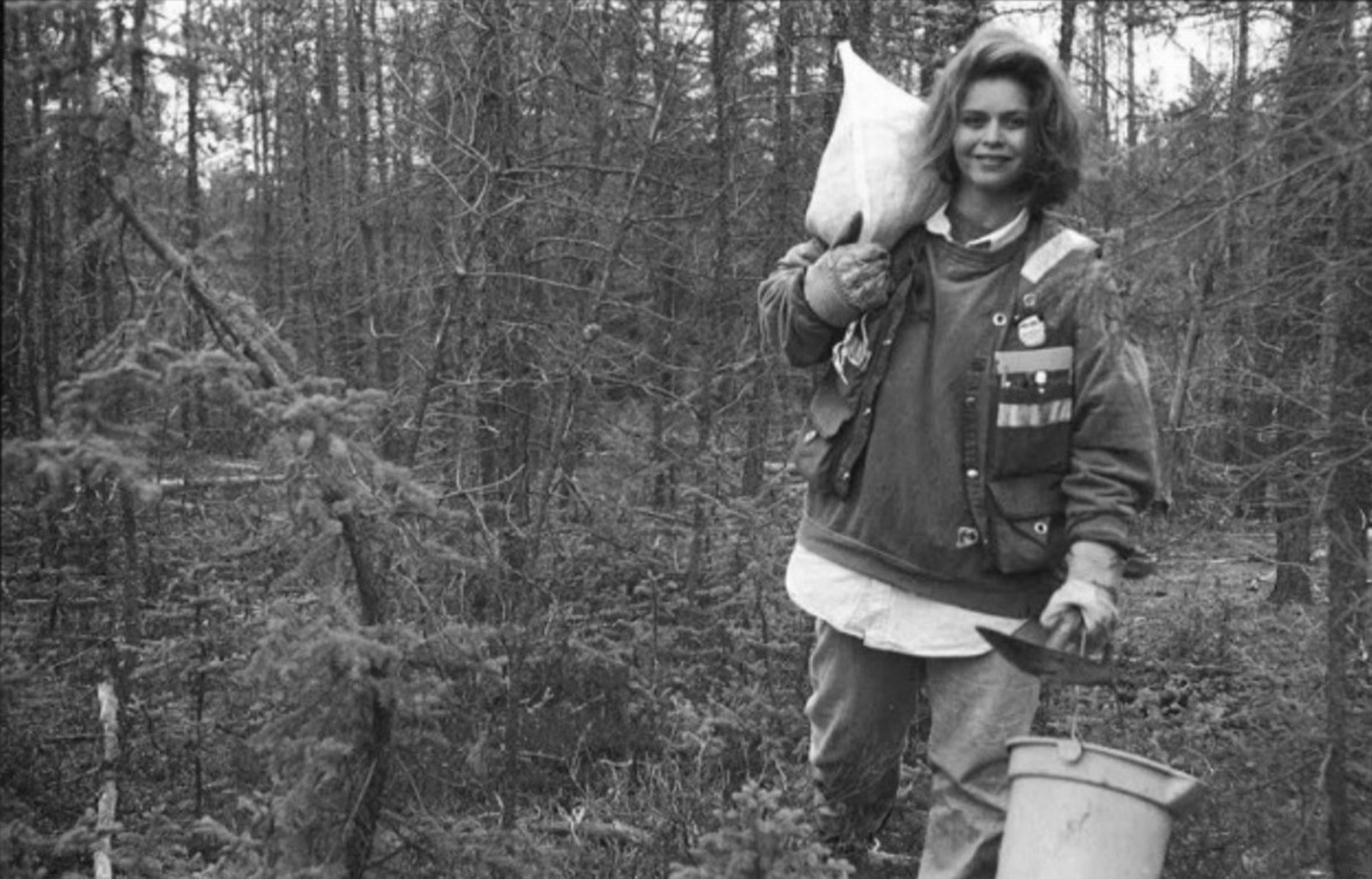Just by glancing at the list of credentials after her name, you’d guess that Makayla Sicat CA1’22, BA’22, BAHons’24 has walked across the University of Regina convocation stage three times – three credentials means three convocation ceremonies. In fact, in 2022, she earned two in one go — a Certificate in Administration Level 1 and BA in Psychology — followed by a BA in Sociology with Honours in 2024. When Sicat attended her second convocation in the fall of 2024, she noticed a difference among the soon-to-be-graduates.
“While standing in line at the ceremony, we were chatting and several people said they were receiving a degree, as well as a certificate. I was really surprised. This option seems more popular now than when I graduated with two credentials a few years ago.”
My academic journey did not follow a straight line but that is what university is to me — a place to explore and find what fits. Laddering and taking a slower path was an amazing option and helped me thrive. — Chelsea James, CA1’12, CA2’12, CEcon’13, DBA’14, BA’17
After taking the courses outside her program that piqued her curiosity, Sicat wondered if there was a way to use her electives to gain a second credential — without delaying convocation or costing more money. She researched online and found the Admin 1 Certificate, a five-course offering through the Centre for Continuing Education (CCE).
“With only five required courses, the undergraduate certificate was perfect and gave me important skills in communications and leadership that I can apply to any career,” says Sicat.
According to Sicat, arranging her studies to meet the requirements for two credentials was easy with the help of Heather Antonini, an Academic Advisor at Campion College. For more than 20 years, Antonini has been helping students personalize their studies to suit their goals, circumstances, and interests.

“Students are often unsure which courses to take when selecting electives. After reviewing their field of study and interests, I often recommend a certificate to add texture to their degree, personalize their program, and help set them apart,” explains Antonini. She then adds, “And today there are more options to choose from.”
By combining the Certificate in Administration with her bachelor’s degree, Sicat also became eligible for the U of R’s co-op work program and gained valuable experience in a communications job - along with a pay cheque.
Expanded undergraduate certificate and diploma options
Currently, there are more than 50 certificate or diplomas which can be taken alongside programs in faculties such as Arts, Kinesiology and Health Studies, Media, Art and Performance, and Science. Some are completely online and offer a high level of flexibility such as the Public Relations Certificate and the Advanced Certificate in Public Relations and Communications Management offered by CCE. Students who live rurally or in communities other than Regina can earn a credential online or through a community college in partnership with the U of R.
The Certificate in Ideation, Creativity, and Entrepreneurship (CICE), Certificate in Reconciliation Studies (CRS), and the Certificate in Administration (Level I or Level II) combined with a bachelor’s degree were the most common combinations at the Fall 2024 Convocation. Examples of newer offerings include the Certificate in Forensic Psychology with its first class of 17 graduates at the Spring 2024 Convocation and the Diploma in Indigenous Communication Arts.
Stacking or laddering credentials
For students who choose to study incrementally over a longer period of time, the range of certificate and diploma options also provides added opportunity and choice. Chelsea James CA1’12, CA2’12, CEcon’13, DBA’14, BA’17 began her studies at the U of R 15 years ago and has 5 credentials to show for it.
“My academic journey did not follow a straight line but that is what university is to me — a place to explore and find what fits. Laddering and taking a slower path was an amazing option and helped me thrive,” says James.

Laddering offers a manageable yet strategic choice for students such as James who juggled the demands of motherhood and a job while earning Admin I and Admin II Certificates, a Certificate in Economics, a Diploma in Business Administration, and a Bachelor’s degree in Business and Economics. Building upon previously earned credentials, also referred to as laddering or stacking, leaves the door open for advancement if and when the time feels right.
“My professors and advisors were incredibly supportive every step of the way,” says James. “The amazing thing about studying while working is that I was able to immediately apply what I was learning. It really deepened my educational outcomes,” she adds.
James says laddering also made it possible for her to benefit from the Government of Saskatchewan Graduate Retention Program tax credit and apply the funds to her tuition. With her sights set on a master’s degree and a background in gymnastics, James quips that she “flips” for lifelong learning. The busy working mom was on the former U of R cheer squad when she studied in her early 20s and again as the oldest member of the squad when she returned to her studies at the U of R when she was 30.
Reach out to an advisor
Christie Schultz, Dean of the Centre for Continuing Education at the U of R, has advice for students who are considering combining or laddering credentials.
"We want the best for our students and adding a specific skill set to their degree, in areas like public relations or administration, can make a student's résumé stand out when applying for jobs," says Schultz. "Plus, all it takes is some pre-planning and an online application. My advice for students is to talk to their advisor early in their program—advisors are there to help you figure out how to use your electives to earn a certificate as well as your degree."

With more options, flexibility, and the recently introduced full-year registration model at the U of R, planning a course pathway to accommodate dual credentials or laddering is easier than ever before. Full-year registration enables students to plan across all aspects of life — academics, finance, work placements, job schedules, curricular activities, and personal time — with registration for spring/summer, fall, and winter terms available every mid-February. Both laddering or concurrent credentials empower students to choose the path that best suits their schedule, interests, and career goals.
Learn more about the undergraduate certificate and diploma options available at the U of R today. Filter by Program Type (Certificates or Diplomas) on the Explore Academic Programs search page.
About the University of Regina
2024 marked our 50th anniversary as an independent University (although our roots as Regina College date back more than a century!). As we celebrate our past, we work towards a future that is as limitless as the prairie horizon. We support the health and well-being of our 17,200 students and provide them with hands-on learning opportunities to develop career-ready graduates – more than 92,000 alumni enrich communities in Saskatchewan and around the globe. Our research enterprise has grown to 21 research centres and 9 Canada Research Chairs. Our campuses are on Treaties 4 and 6 - the territories of the nêhiyawak, Anihšināpēk, Dakota, Lakota, and Nakoda peoples, and the homeland of the Michif/Métis nation. We seek to grow our relationships with Indigenous communities to build a more inclusive future.
Let’s go far, together.




